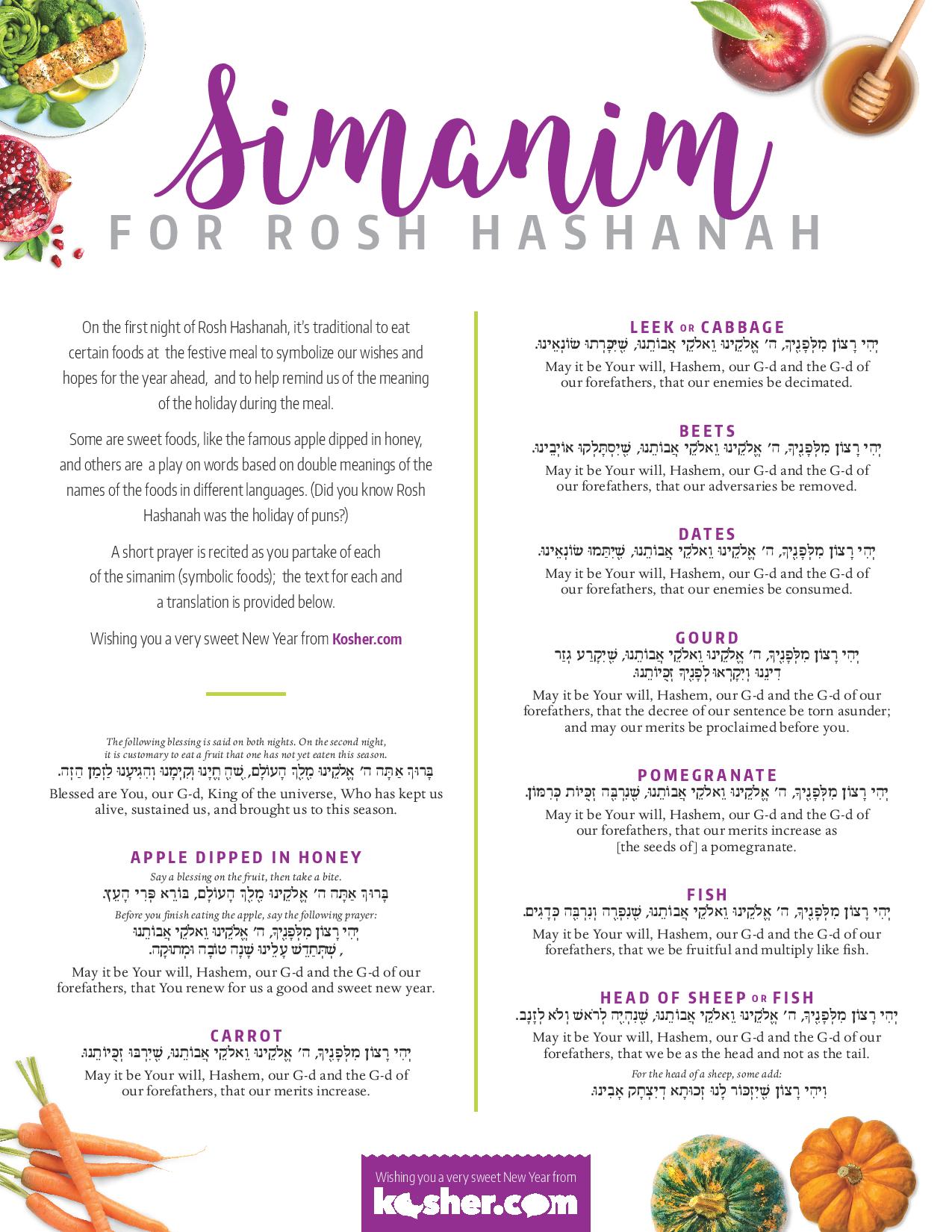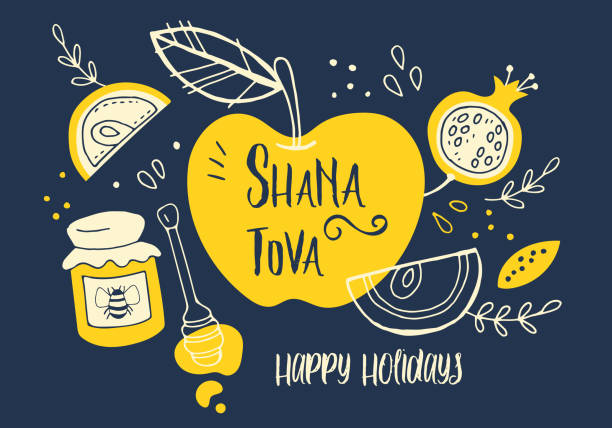Rosh Hashanah | This year, rosh hashanah begins at sundown on monday, september 6th. Rosh hashanah is the birthday of the universe, the day g‑d created adam and eve, and it's celebrated as the head of the jewish year. It begins at sundown on the eve of tishrei 1 (sept. Who shall be impoverished and who shall be enriched; As we read in the rosh hashanah prayers, each year on this day "all inhabitants of the world pass before g‑d like a flock of sheep," and it is decreed in the heavenly court "who shall live, and who shall die. Who shall fall and who shall. The name "rosh hashanah" translates from hebrew to mean "the head of the year," and the holiday. For those observing two days, it ends at sundown on wednesday, september 8th. Rosh hashanah, the jewish new year, is a fall holiday, taking place at the beginning of the month of tishrei, which is actually the seventh month of the jewish year (counting from nisan in the spring). T'shuvah תְּשׁוּבָה return; the concept of repentance and new beginnings, which is a continuous theme throughout the high holidays. For those observing two days, it ends at sundown on wednesday, september 8th. רֹאשׁ הַשָּׁנָה ), literally meaning head of the year, is the jewish new year.the biblical name for this holiday is yom teruah (יוֹם תְּרוּעָה ), literally day of shouting or blasting. it is the first of the jewish high holy days (יָמִים נוֹרָאִים yamim nora'im. Rosh hashanah, literally the "head of the year" is the jewish new year. Rosh hashanah is the birthday of the universe, the day g‑d created adam and eve, and it's celebrated as the head of the jewish year. Meaning "head of the year" or "first of the year," the festival begins on the first day Rosh hashanah is a festive occasion, as well as a time for prayer and reflection. Sep 02, 2021 · rosh hashanah is one of the most important holidays for jewish people around the world. Who shall fall and who shall. Oct 27, 2009 · rosh hashanah, the jewish new year, is one of judaism's holiest days. Aug 11, 2021 · via half baked harvest. The biblical name for this holiday is yom teruah ( יוֹם תְּרוּעָה), literally day of shouting or blasting, and is also more commonly known in english as the feast of trumpets. It is a time of inner renewal and divine atonement. Who shall be impoverished and who shall be enriched; Oct 27, 2009 · rosh hashanah, the jewish new year, is one of judaism's holiest days. I mean, think about it: The central observance of rosh hashanah is blowing the shofar (ram's horn) on both mornings of the holiday (except on shabbat ), which is normally done in synagogue as part of the day's services but may be done elsewhere for those who. The jewish new year, rosh hashanah actually means "head of the year.". Meaning "head of the year" or "first of the year," the festival begins on the first day This year, rosh hashanah begins at sundown on monday, september 6th. Rosh hashanah is the birthday of the universe, the day g‑d created adam and eve, and it's celebrated as the head of the jewish year. Rosh hashanah, literally the "head of the year" is the jewish new year. 6, 2021) and ends after nightfall on tishrei 2 (sept. The name "rosh hashanah" translates from hebrew to mean "the head of the year," and the holiday. Who shall be impoverished and who shall be enriched; The jewish new year, rosh hashanah actually means "head of the year.". Oct 27, 2009 · rosh hashanah, the jewish new year, is one of judaism's holiest days. Just like the head controls the body, our actions on rosh hashanah have a tremendous impact on the rest of the year. Sep 02, 2021 · rosh hashanah is one of the most important holidays for jewish people around the world. It is a time of inner renewal and divine atonement. It's the first of the jewish high holy days, celebrating the anniversary of the creation of the universe, when god created adam and eve and was coronated as king. T'shuvah תְּשׁוּבָה return; the concept of repentance and new beginnings, which is a continuous theme throughout the high holidays. It is the first of the jewish high holy days ( יָמִים נוֹרָאִים yamim nora'im. Who shall be impoverished and who shall be enriched; I mean, think about it: Just like the head controls the body, our actions on rosh hashanah have a tremendous impact on the rest of the year. As we read in the rosh hashanah prayers, each year on this day "all inhabitants of the world pass before g‑d like a flock of sheep," and it is decreed in the heavenly court "who shall live, and who shall die. Who shall fall and who shall. The biblical name for this holiday is yom teruah ( יוֹם תְּרוּעָה), literally day of shouting or blasting, and is also more commonly known in english as the feast of trumpets. Rosh hashanah, literally meaning head of the year, is the jewish new year. Rosh hashanah is the birthday of the universe, the day g‑d created adam and eve, and it's celebrated as the head of the jewish year. Sep 02, 2021 · rosh hashanah is one of the most important holidays for jewish people around the world. Meaning "head of the year" or "first of the year," the festival begins on the first day When it comes to rosh hashanah desserts, it's safe to say that more is more. Oct 27, 2009 · rosh hashanah, the jewish new year, is one of judaism's holiest days. Rosh hashanah, literally the "head of the year" is the jewish new year. רֹאשׁ הַשָּׁנָה ), literally meaning head of the year, is the jewish new year.the biblical name for this holiday is yom teruah (יוֹם תְּרוּעָה ), literally day of shouting or blasting. it is the first of the jewish high holy days (יָמִים נוֹרָאִים yamim nora'im. This year, rosh hashanah begins at sundown on monday, september 6th. T'shuvah תְּשׁוּבָה return; the concept of repentance and new beginnings, which is a continuous theme throughout the high holidays. The central observance of rosh hashanah is blowing the shofar (ram's horn) on both mornings of the holiday (except on shabbat ), which is normally done in synagogue as part of the day's services but may be done elsewhere for those who.


Rosh Hashanah: The central observance of rosh hashanah is blowing the shofar (ram's horn) on both mornings of the holiday (except on shabbat ), which is normally done in synagogue as part of the day's services but may be done elsewhere for those who.